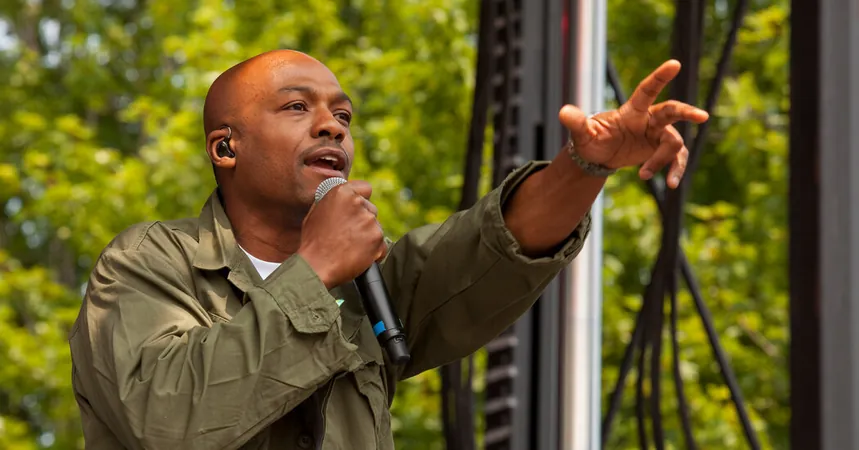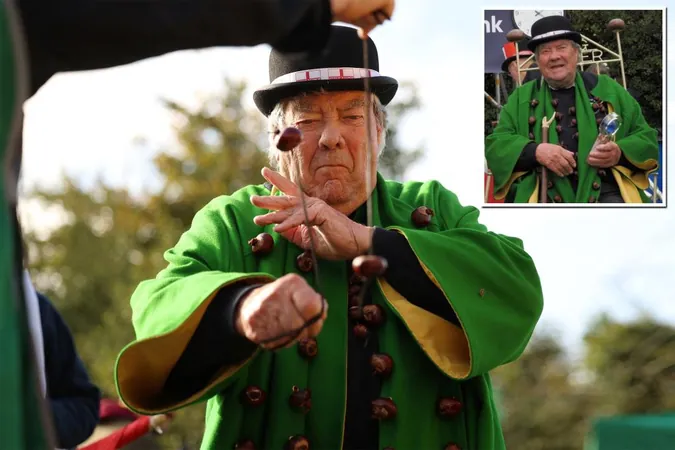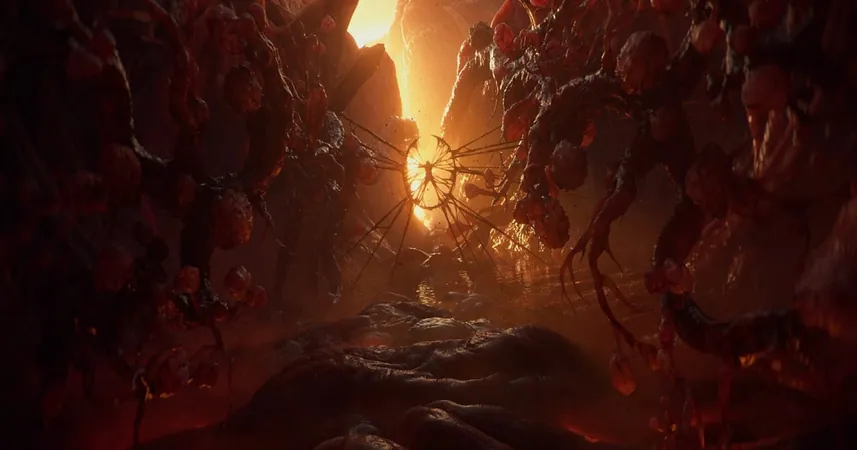
Ka, The Pioneering Voice of New York’s Underground Rap Scene, Passes Away at 52
2024-10-14
Author: Ming
Kaseem Ryan, known to fans and hip-hop enthusiasts as Ka, tragically passed away at the age of 52 in New York City on Saturday. The announcement of his unexpected death came from his wife, Mimi Valdés, via social media, leaving fans in shock and mourning the loss of such a significant figure in the underground rap community.
Born in 1972 and raised in the Brooklyn neighborhood of Brownsville, Ka fought against a challenging upbringing, including a turbulent adolescence characterized by dealing drugs and firearms. Despite these struggles, his passion for music shone through as he made his mark initially with the underground group Natural Elements in the mid-1990s. However, it was his solo career, spanned across 11 self-produced albums over two decades, that truly captured the hearts of hard-core hip-hop listeners.
His sophomore album, "Grief Pedigree," released in 2012, received critical acclaim, with The New York Times calling him "a striking rapper" for his minimalist style, which emphasized storytelling over flashy presentation. Ka’s music was characterized by somber beats and raw depictions of street life, reflecting both personal and collective struggles within urban communities.
After a decade-long hiatus from music, Ka made a triumphant return in 2007 with "Iron Works," employing a guerrilla marketing strategy to share his music with the world. "I gave them to my cousins, my friends. I still had, like, 990 CDs left. So I started giving them away," he recounted in a 2017 interview, highlighting how his connections fueled his underground following.
By the time of his 2012 album, Ka's fan base had grown sufficiently for him to announce new releases through social media and sell physical copies directly from the trunk of his car. This hands-on approach to sharing his music made him an enduring figure in the hip-hop scene, as he continued to engage with fans personally.
A unique duality characterized Ka’s life; alongside his music career, he also served as a captain in the New York Fire Department for two decades, even responding to the World Trade Center terrorist attacks on September 11, 2001. "I never wanted to be 'The Rapping Captain,'" he stated in an interview, illustrating his desire to separate his two identities. Music was his passion, while firefighting was his duty—a testament to his dedication and resilience.
Yet, his lyrics often stirred controversy. Songs that discussed the violent realities of street life and criticized systemic injustices led to backlash, including criticism from the New York Police Department for what they perceived as anti-police sentiments—a reflection of the complex interplay between art and real-life issues in his music.
Survived by his wife Mimi, his mother, and his sister, Ka’s legacy will undoubtedly continue to inspire upcoming artists in the underground scene and beyond. As fans and the broader music community remember his contributions, the sense of loss is amplified by the knowledge that an authentic voice has been silenced far too soon.
Ka's death serves as a poignant reminder of the power of music as a medium for social commentary and personal expression, urging fans to celebrate his life by revisiting his impactful discography. What will happen to the underground rap scene now that it has lost one of its stalwarts? Stay tuned for more insights and a tribute to a legend who fought both fires and the flames of injustice through his art.





 Brasil (PT)
Brasil (PT)
 Canada (EN)
Canada (EN)
 Chile (ES)
Chile (ES)
 España (ES)
España (ES)
 France (FR)
France (FR)
 Hong Kong (EN)
Hong Kong (EN)
 Italia (IT)
Italia (IT)
 日本 (JA)
日本 (JA)
 Magyarország (HU)
Magyarország (HU)
 Norge (NO)
Norge (NO)
 Polska (PL)
Polska (PL)
 Schweiz (DE)
Schweiz (DE)
 Singapore (EN)
Singapore (EN)
 Sverige (SV)
Sverige (SV)
 Suomi (FI)
Suomi (FI)
 Türkiye (TR)
Türkiye (TR)